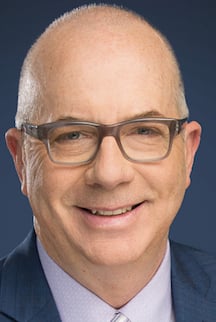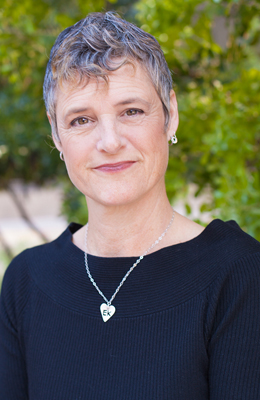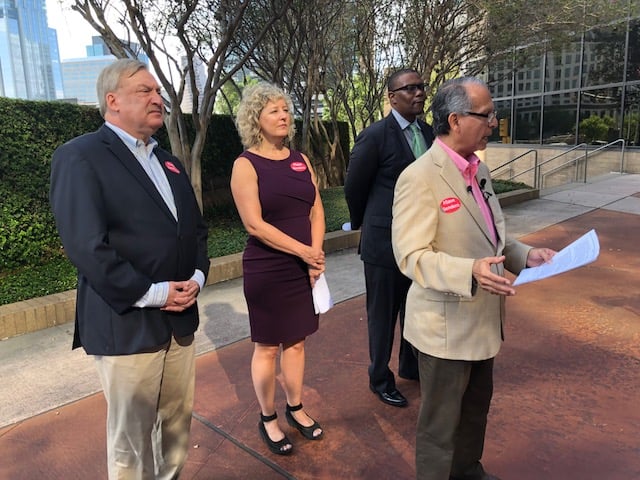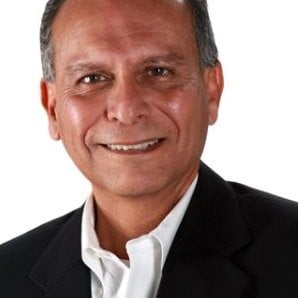Travis County Commissioners Court asks Central Health to reconsider its decision to wind down
Part 12 in a Series
Central Health’s Board of Managers will hold a special-called meeting this Saturday, September 22, starting at 1pm at 1111 E. Cesar Chavez St.
The purpose is to give the managers a chance to reconsider their 4-3 vote taken at 10pm September 12 to wind down Sendero Health Plans Inc., which provides health insurance plans under the Affordable Care Act for some 24,000 low-income members in eight counties. The Austin Bulldog’s report of September 17 detailed the emotionally charged debate that brought about the wind-down vote.
A key point in the backlash over the decision is the agenda for that Board of Managers meeting gave no clues about the drastic action it might take: “Discuss and take appropriate action on an update regarding Sendero Health Plans Inc., including the effect of federal legislative and regulatory changes. (Action Item)” Thus, the decision was made with zero public input.
Citizens Communication about Sendero’s fate will be allowed at this Saturday’s meeting. To speak you first must sign-in first and provide your name, address, and organization. Each speaker will have three-minutes. You may also provide written feedback on Central Health’s website before the meeting starts. The meeting will be streamed live on Central Health’s website and on the agency’s YouTube channel.
While public comments have been invited this time, the overarching question is whether pressure to reverse the wind-down decision will change anything. For the Board of Managers to again debate the matter hinges on the rules of parliamentary procedure, the body of rules that govern meetings.

Ted Burton, vice president of communications for Central Health, said in an email, “A motion for reconsideration must be made by a member who voted with the prevailing side.”
That puts the pressure on four members of the Board of Managers: The motion to allocate $4 million to fund Sendero’s winding down, in addition to the $20 for Sendero already approved in the FY19 budget, was made by Manager Katrina Daniel, seconded by Manager Sherri Greenberg, and supported by Managers Shannon Jones and Maram Museitif.
If none of those managers move to reconsider, the board’s previous decision stands, unless a manager moves to suspend the rules and that motion passes to open debate.
Commissioners Court has final say
Regardless of what the Board of Managers does Saturday, the Travis County Commissioners Court will again consider approving Central Health’s FY19 budget and tax rate at its next meeting, Tuesday September 25, said Peter Einhorn, chief of staff for County Judge Sarah Eckhardt.

The Commissioners Court was scheduled to do that at the September 18 Commissioners Court meeting. Instead it spent an hour and a half listening to people complaining about the wind-down that would force Sendero’s members to seek insurance from a for-profit insurance company that would likely charge higher premiums and offer a smaller network of service providers.

Despite what at times were highly emotional personal stories about how their lives would be hurt if Sendero’s insurance programs are no longer available, Judge Eckhardt made her position clear by declaring she would support whatever decision the Board of Managers makes.
Commissioner Margaret Gomez seemed to favor Sendero’s proposal to move the sickest members, voluntarily, from the Managed Access Program to Sendero, a move that would enable Sendero to draw down federal funds from the risk-adjustment pool instead of paying in because on average it’s members are not sick enough. For that reason, Sendero paid $78 million in risk adjustments over the last two years.

Commissioner Jeff Travillion said that he wanted to “see the numbers” side-by-side to decide which alternative would be best, that is, to move the MAP members to increase federal funding or wind-down Sendero’s operations because of the perceived financial risks.
Commissioner Brigid Shea was absent Tuesday. But proponents of continuing Sendero operations will be glad to know that Shea, a strong proponent of moving sick MAP patients to Sendero and drawing down significantly more federal funds via the risk adjustment, will be back from out of town Monday, according to her office.

She will attend Tuesday’s Commissioners Court meeting where Sendero’s ultimate fate will be decided.
Backlash triggered special meeting
Fred Lewis, Heather Alden, Brandon Reed and Frank Ortega faced the press at Tuesday morning’s press conference.
 Central Health’s special-called meeting was the result of vocal opposition that rose up immediately after that Board of Managers wind-down decision was made. Sendero’s fans were not only outraged by the decision but also dismayed the decision was made at 10pm under an agenda item that did not indicate the managers were considering such drastic action.
Central Health’s special-called meeting was the result of vocal opposition that rose up immediately after that Board of Managers wind-down decision was made. Sendero’s fans were not only outraged by the decision but also dismayed the decision was made at 10pm under an agenda item that did not indicate the managers were considering such drastic action.
But, after a closed-door executive session of some two and a half hours, in open session the managers voted to do just that.
At a press conference held right before Tuesday’s Commissioners Court meeting, the League of United Latin American Citizens (LULAC) District VII, the SIMS Foundation, attorney Fred Lewis (who, as The Austin Bulldog reported last October, sued Central Health for allegedly misspending money intended for indigent healthcare), and Colony Park resident Brandon Reed aired their complaints before news crews from several television stations and other journalists.
The stated goal for the press conference was to get the Commissioners Court to allow Sendero to continue serving its members with affordable health insurance through the 2019 budget cycle. That would allow time for holding additional public hearings and discussions in following months about whether Sendero should continue operations or be phased out.

Frank Ortega“Central Health has lost its way,” Frank Ortega, executive director of LULAC District 7, told reporters. “Central Health provides $8 million funding in next year’s budget to upgrade Red River (Street) but can’t provide $6 million to fund Sendero’s sound business plan,” he said. Six million dollars is the estimated amount it would cost Central Health to pay for premiums if Medical Access Program members are voluntarily moved to get Sendero’s health insurance.
Via email, Ted Burton responded to Ortega’s criticism of the $8 million to be spent on Red River Street, saying, “Re-alignment of Red River Street is part of the Downtown Campus (Brackenridge) redevelopment. Redevelopment of the Downtown Campus will generate hundreds of millions of dollars in revenue over nearly a century to pay for health care services in Travis County. As part of the project, Red River must be re-aligned to accommodate future redevelopment.”
At the press conference Ortega referred to the reports provided by actuaries hired by Central Health to analyze the risks of moving sick MAP patients to Sendero. He said if that happens, “Sendero will become financially stable and will no longer require investment from Central Health.”

Heather Alden, executive director of the SIMS Foundation, which provides access and financial support for mental health and addiction recovery to Austin music professionals and their family members, said, “SIMS Foundation clients receive premium assistance through Central Health for the Sendero silver-level plan. The plan provides full health insurance coverage to our population of low-wage, self-employed musicians and music industry workers..
“This program maximizes federal dollars to improve healthcare for a vocal and visual cohort of Austin’s working poor—these are the musicians and professionals working in live music who draw tourists and talent to our city,” she said.
Alden said these healthcare recipients enjoy low-deductible, low co-pay healthcare that encourages prevention and proactive response to health issues before they escalate, and diverts them from using an emergency room for their primary healthcare. Before the Affordable Care Act and Sendero Health Plans, she said, these people had to rely on benefit concerts and GoFundMe campaigns when disaster struck and only saw doctors when in desperate circumstances.
“Without Sendero, we return these individuals to an uncertain future,” she said. “Our neighbors are in jeopardy of losing healthcare coverage completely if we allow this program to die.”
Related Bulldog coverage:
Board to Sendero: Drop Dead: Wind-down order despite professional advice that moving sick patients would stabilize finances, Part 11 in a Series, September 17, 2018
Sendero Turnaround Plan in Limbo: Sendero Health Plans has an attractive turnaround strategy but it’s not clear Central Health will commit, Part 10 in a Series, September 9, 2018
Central Health Hears Budget Feedback: Live audience interacts with slide show, answers questions via electronic polling, Part 9 in a Series, August 3, 2018
No-Bid Brackenridge Lease Approved: Two blocks of the 14.3-acre campus tract leased to limited partnership that won’t profit, Part 8 in a Series, July 17, 2018
Central Health Sponsorships Top $200,000: New spending adds $88,000 to the total having no connection to indigent healthcare, Part 7 in a Series, May 2, 2018
Dining and Shining on Taxpayer Dollars: Central Health spent more than $111,000 for sponsorships that have nothing to do with providing indigent healthcare, Part 6 in a Series, March 30, 2018
Central Health’s Checkup Delivered: Consultants delivered performance review completed eight months after contract let, Part 5 in a Series, February 14, 2018
Lawsuit Challenges Central Health Spending: Plaintiffs argue it is not legal to give $35 million a year to the UT Austin Dell Medical Center, Part 4 in a Series, October 18, 2017
Critic: Proposed Financial Policies “’Pointless’: Commissioners Court will vote tomorrow on Central Health financial policies for FY 18, Part 3 in a Series, October 9, 2017
Central Health Financial Policies Hotly Debated: $185 million given to Dell Medical School and Seton, with little to show for indigent healthcare, and $55 million more is on the way for FY 2018, Part 2 in a Series, September 29, 2017
Central Health Feedback Meetings Ill-Attended: Two public forums to gather opinions about the agency drew just nine speakers, Part 1 in a Series, August 27, 2017
Trust indicators:
Ken Martin has been covering local government and politics in the Austin area since 1981. See more on Ken on the About page.
Email [email protected]. This is his 12th article about Central Health and indigent healthcare arising out of his ongoing investigation that begin in early 2017.
Who funds this work? This report was made possible by contributions to The Austin Bulldog, which operates as a 501(c)(3) nonprofit for investigative reporting in the public interest. You can help support this independent coverage by making a tax-deductible contribution.
An alphabetic list of donors who have contributed to The Austin Bulldog since the organization was formed in 2009 and the cumulative amount each person has given through August 28, 2018, are listed on the tax-deductible contribution.








